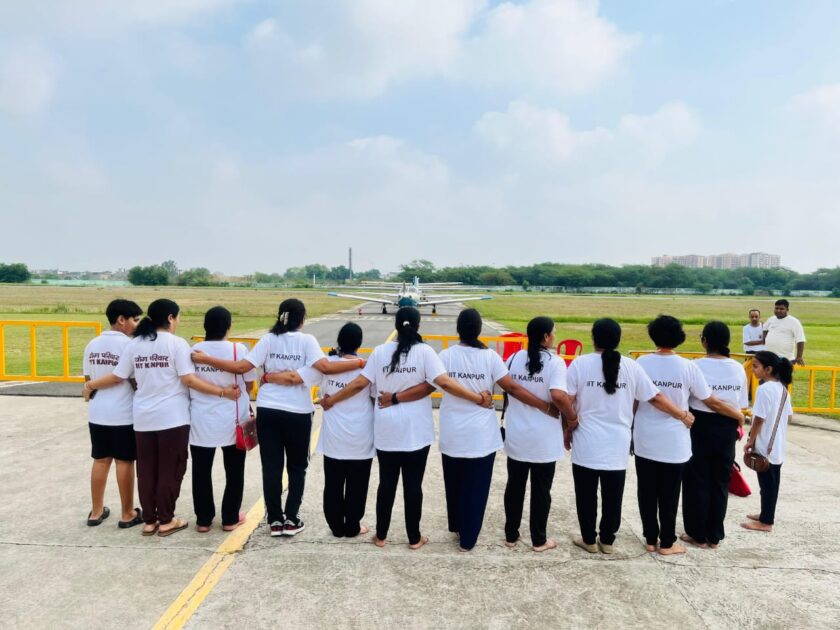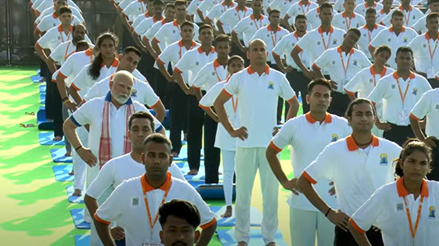New Delhi: Following the Indian Air Force’s show of strength during Operation Sindoor, Air Chief Marshal Amar Preet Singh has made a rare and candid public appeal, expressing serious concern over delays in defence supplies and calling for urgent corrective action. The IAF chief stressed the need for India to move swiftly towards self-reliance in its defence production, particularly in the face of twin challenges from Pakistan and China.
Speaking at the CII Annual Business Summit on May 29, Singh said, “Delays in defence production are detrimental to our operational preparedness. These delays, particularly in indigenous projects, are affecting our ability to meet current military demands.” He specifically pointed to the lag in delivery of 83 Tejas Mk1A fighter jets by Hindustan Aeronautics Limited (HAL), a ₹48,000 crore contract awarded in 2021. The original delivery was to begin by March 2024, but that timeline has not been met.
The primary cause, as he highlighted, is difficulty in securing engines from American manufacturer General Electric due to supply constraints. Notably, Singh made these remarks in the presence of Defence Minister Rajnath Singh, underscoring the gravity of his concerns.
Push for Indigenous Design, Not Just Manufacturing
Air Chief Marshal Singh emphasized that India must focus not only on manufacturing but also on designing its own weapon systems. “We must develop design capabilities within the country. There must be trust and transparency between the military and the industry. Once we commit to a project, we must deliver,” he said. The Air Force is fully backing the ‘Make in India’ initiative, but Singh stressed that the immediate defence needs cannot wait for a 10-year production ramp-up.
In what is being seen as a positive move following Operation Sindoor, the government has recently cleared the development of India’s indigenous fifth-generation stealth fighter jet — the Advanced Medium Combat Aircraft (AMCA). Once operational, AMCA will put India in the elite club of nations capable of building stealth aircraft, joining the likes of the US, China, and Russia.
Combat Readiness and the Numbers Gap
India currently maintains only 30 operational fighter squadrons, well below the sanctioned strength of 42.5 required to meet a potential two-front threat from China and Pakistan. “What China has, often finds its way to Pakistan,” Singh warned. The recent skirmish saw Pakistan deploy Turkish drones and Chinese fighter jets — an alarming sign of growing coordination between India’s adversaries.
Meanwhile, China is reportedly preparing to supply its J-35 stealth fighter jets to Pakistan, escalating the regional arms race. Given this, Singh argued, it is imperative to accelerate deliveries and production domestically. The HAL has been unable to meet even its commitment of delivering 24 Tejas Mk1A jets annually — far below the IAF’s requirement of 35-40 fighters a year.
Political Ripples and Opposition’s Concern
The Air Chief’s forthright remarks have triggered political reaction. Congress has expressed its concern over delays in key defence projects and demanded prompt corrective action. Telangana minister and Congress leader Uttam Kumar Reddy, himself a former IAF officer, stated, “The delay in delivery of fighter jets is a serious issue. We appreciate the Air Force’s role in the recent India-Pakistan conflict, but we must strengthen our forces further.”
He added that Congress leaders including Rahul Gandhi and KC Venugopal have repeatedly raised the need to maintain a 42-squadron strength, given the two-front challenge. “Each operational squadron must have 16–18 aircraft. We currently have only 31. That is a dangerous shortfall.”
According to defence experts, India’s armed forces are also facing over 10% workforce shortage — a problem exacerbated by slowed recruitment during the COVID-19 pandemic.
Way Forward: Urgency in Reform
Defence experts and veterans agree with Singh’s assessment and call for immediate action. “The failure to deliver Tejas Mk1A on time is not just a delay — it’s a strategic setback,” said a senior retired officer. “The government must treat this as a national priority.”
Despite India’s defence exports reaching over 100 countries and increasing thirtyfold in a decade, Singh’s message was clear: exports alone won’t secure the nation — self-reliance in critical defence production is non-negotiable.
Air Chief Marshal Amar Preet Singh’s pointed comments reflect a growing frustration within the armed forces about systemic delays in defence production. His call for urgent reform and enhanced cooperation between the military and defence industry underscores a critical reality: India must fast-track its self-reliance drive, not just to catch up, but to stay ahead.
Failure to act swiftly could compromise national security. Singh’s words ring with urgency: “Wars are won by strengthening the forces. Let’s not prepare for yesterday’s battles — let’s be ready for tomorrow’s threats.”






